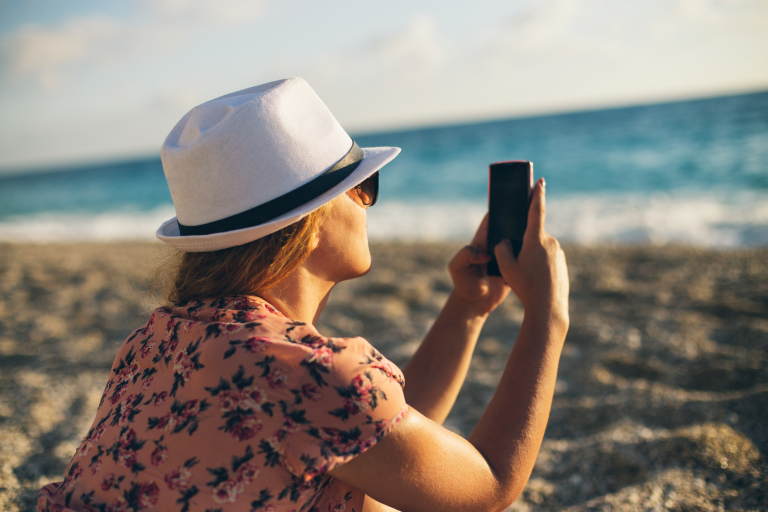
Only 27 percent said that they could take a vacation without taking their smartphone. Image: Milan_Jovic/Istock.com via AFP Relaxnews
It’s too easy, when taking a well-earned break, to forget that even though you’re on holiday, digital deviants, hackers and phishing scams aren’t.
Compounding the problem is the fact that according to a new global study conducted by McAfee, most of us won’t be able to put our digital devices down during the summer break.
Over one third (38 percent) of all 9500 respondents admitted that even though they’re meant to be on holiday, that they wouldn’t be able to go a whole 24 hours without checking work or personal email. What’s more, 52 percent of United States respondents (the firm polled consumers across Australia, France, Germany, the United Kingdom and U.S.) said that they typically spend more than an hour a day sifting through email, texts and social media during their vacations.
Holidaymakers are prepared to travel light (72 percent said they’re happy to leave the laptop at home) but letting go of a smartphone is a different matter altogether. Just 27 percent said that they could take their vacation without it.
Yet when asked, only 16 percent said that the reason they can’t completely unplug is to stay connected to work. Instead, the most common answer given for keeping connected is maintaining contact with family and friends (62 percent).
“Our devices are extensions of ourselves that we rely on for more tasks every day,” said Gary Davis, chief consumer security evangelist at McAfee.
Regardless of the reasons for keeping the phone turned on, when taking a break on foreign shores, most holidaymakers will look to wi-fi to circumvent often exorbitant roaming charges and this is where one of the greatest potential security risk lies.
When asked, 32 percent of respondents said that if they really need to connect, they will turn a blind eye to how secure a wi-fi connection is and 20 percent admitted that they don’t think about the fact that an open wi-fi connection is open to everyone.
What’s more, while 58 percent say they know how to tell if a wi-fi connection is secure, only 49 percent actually take the time to ensure it is sufficiently secure for their purposes.
Perhaps unsurprisingly, McAfee advises that holidaymakers avoid using wi-fi altogether if at all possible and that if they must connect over an unsecure network to do so via a VPN.
Likewise, before heading off, make sure that all software, applications and anti-virus systems on all devices are completely up to date and that all files have been backed up.
Finally, if your devices support a “find my phone” or “find my computer” feature to make sure it’s enabled. Even if you avoid using unsecure internet connections, the risk of a real-world theft is always present.
“Individuals must exercise caution when using their devices on vacation,” said Davis. “By taking basic security precautions and avoiding unnecessary risks, consumers can better protect personal information making their vacation more enjoyable knowing they are connecting with confidence.” JB
RELATED STORY:
Android TV series unveiled by Skyworth, Toshiba for Philippine market